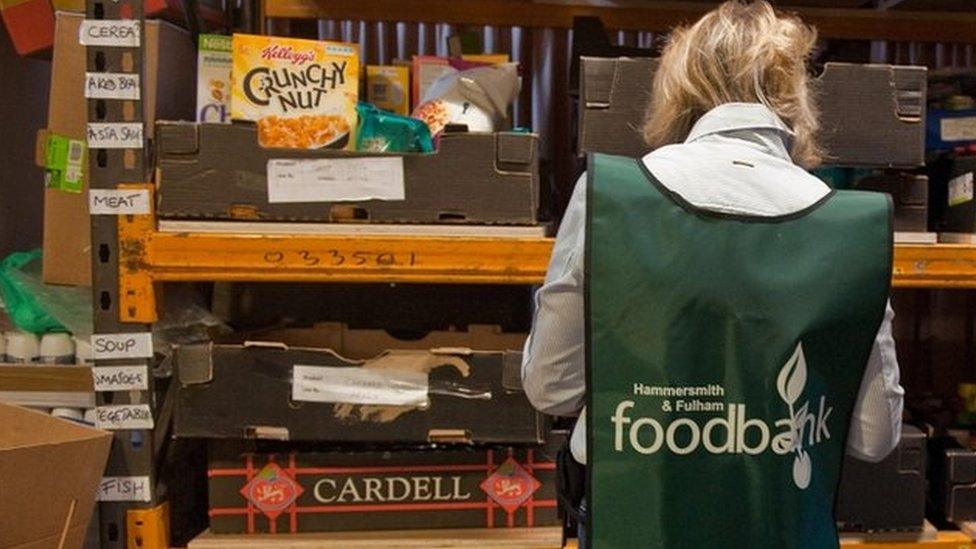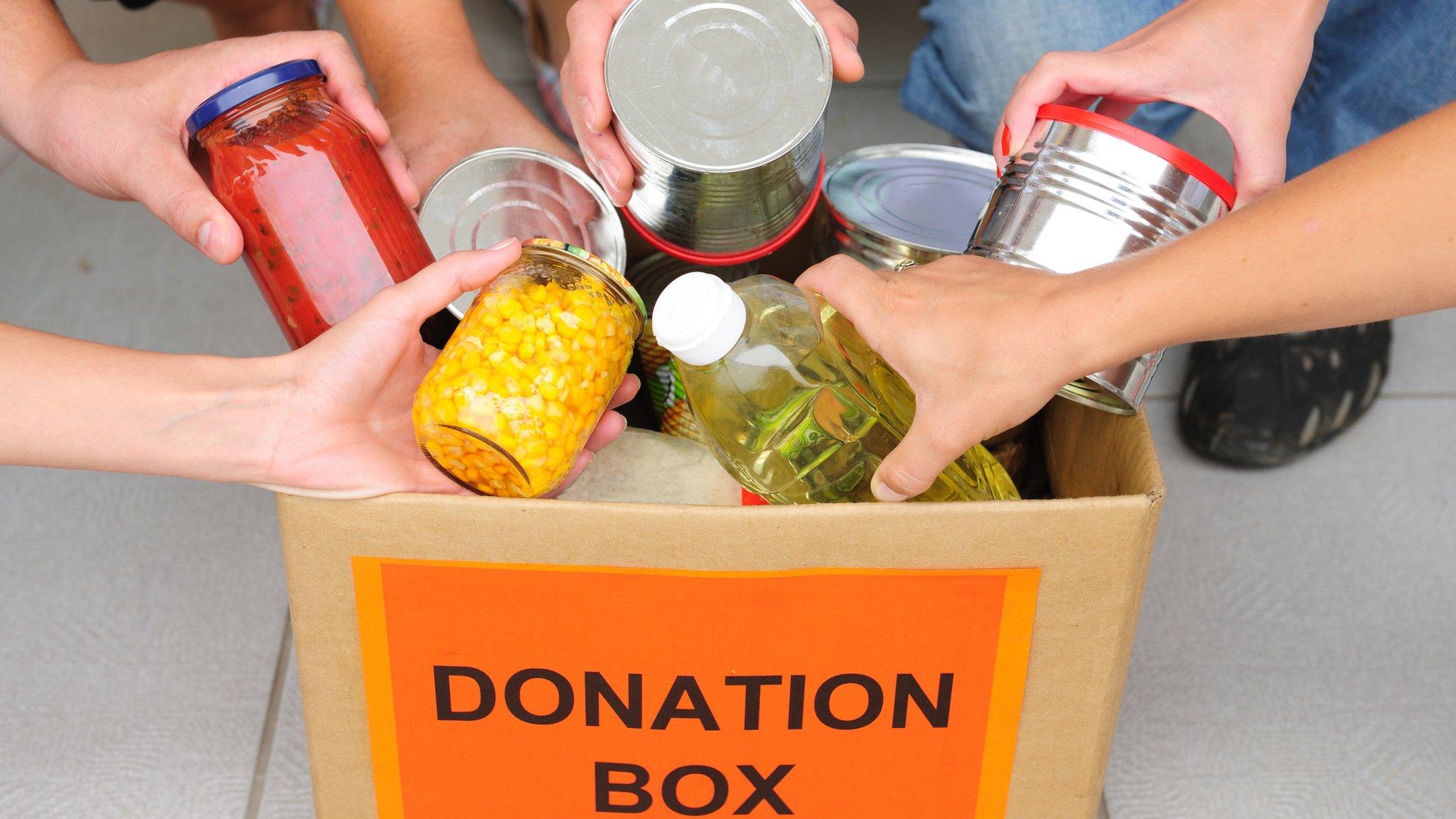Food banks: Record numbers helped by Trussell Trust in Wales
- Published
Nearly a third of those referred for help were because benefits did not cover living costs
Food bank referrals have passed a record 100,000 in Wales in the last year, a charity has reported.
The Trussell Trust has seen the number of food parcels it gives out across the country rise by just over 43% in five years.
Nearly a third of people were referred for help because benefits did not cover the cost of living.
The Department for Work and Pensions denied that benefit changes were driving the use of food banks.
Susan Lloyd-Selby, Wales operations manager for the Trussell Trust in Wales, said: "We are seeing record numbers of people in Wales walking through the doors of food banks because they simply cannot afford food.
"This isn't right. No one should be left hungry or destitute, and we owe it to each other to make sure sufficient financial support is in place when we need it most."

The charity said more than 113,000 three-day emergency food supplies were given to people in crisis in Wales between April 2018 and March this year.
The latest end-of-year figures also show a 15% rise in emergency food parcels for children over the last 12 months.
People needing help have to receive a voucher from community organisations, including schools, GPs, housing and advice agencies.
The charity said the main reasons for people needing emergency food were:
Benefits consistently not covering the cost of living (32%)
Delays (23%) or changes (18%) to benefits being paid
51% of food bank referrals made due to a delay in benefits being paid in Wales were linked to Universal Credit.
The charity wants an end to the five-week wait for a first Universal Credit payment, saying it was leaving many without enough money to cover the basics.
"As a priority, we're urging the government to end the wait for Universal Credit to ease the pressure on thousands of households," said Ms Lloyd-Selby.

Across the UK, nearly 1.6m food parcels were given out in 2018-19
A Department for Work and Pensions (DWP) spokeswoman said: "It is not true to say that people need to wait five weeks for their first payment. Universal Credit is available to claimants on day one.
"It also cannot be claimed that Universal Credit is driving the overall use of food banks or that benefit changes and delays are driving growth."
The spokeswoman said the Trussell Trust's own analysis showed a "substantial fall" in the proportion of parcels being issued due to benefit payment delays.
She said that the best route out of poverty was to help people into sustainable employment "which, with record employment, we are doing".
The DWP added that for those who needed a safety net, £10bn had been invested in Universal Credit since 2016, while the benefits freeze would end next year.

Analysis by India Pollock, BBC Wales social affairs correspondent
The Trussell Trust says the five-week wait for a first Universal Credit payment leaves many without enough money to live on.
But the DWP says people do not need to wait that long.
So do people claiming Universal Credit have to wait or not?
Technically, they're both right. There is a five-week wait for the first payment but you can apply for an advance loan.
So, if your first estimated payment is £251.77 you can ask for the same amount - or less - as an advance.
However, that has to be paid back - and if you choose to spread the payments over the maximum time of one year, this would cost you £20.98 a month which would be deducted from your monthly Universal Credit payments.
And £20 a month is a lot of money to pay back if you're on a low income.
You can also be refused an advance if you live with your parents or friends, or have savings, for example.
- Published6 November 2018

- Published24 April 2018

- Published13 May 2024
